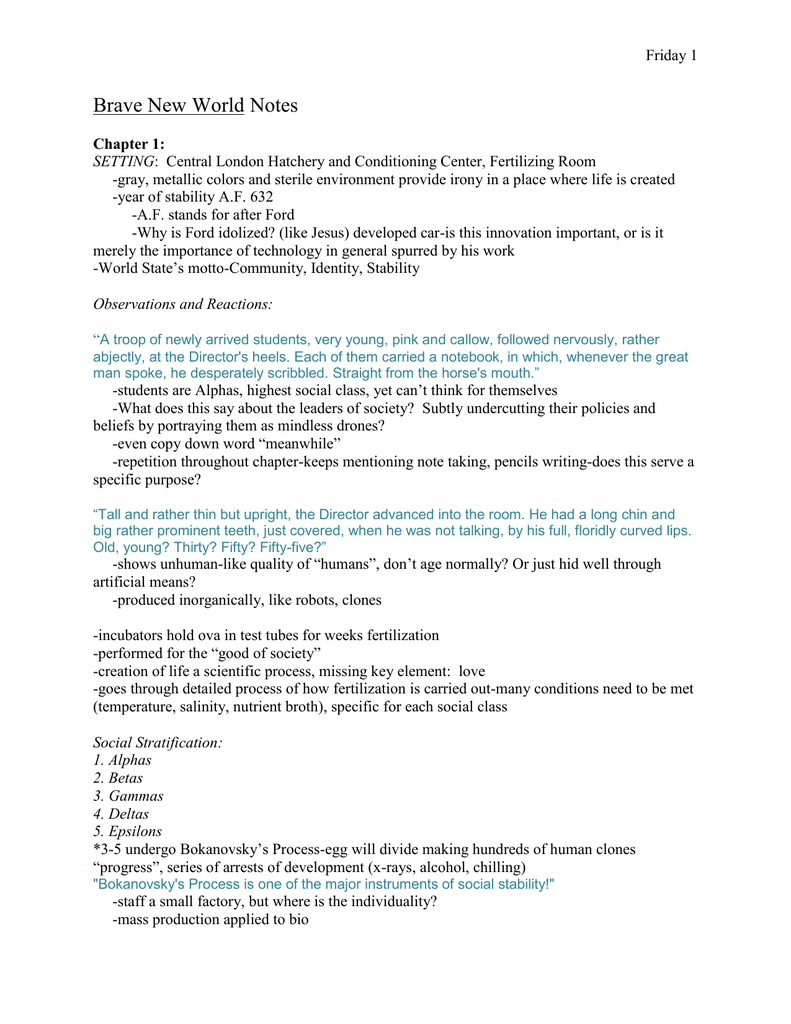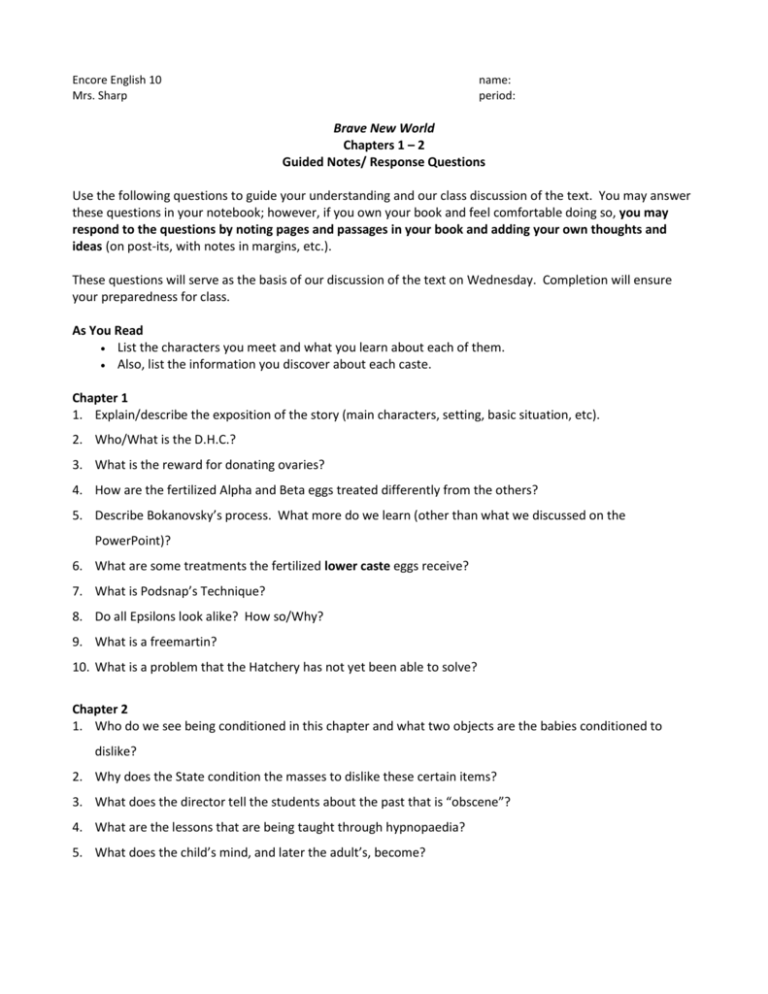
Helmholtz no longer feels himself subordinate to society or any individual. Helmholtz chooses the best chair, Bernard the worst. This chapter draws even starker differences between Helmholtz and Bernard. Art can only exist when it has no meaning, and whereas science is praised for improving society, it is also restricted because it may destabilize society. Mond defines art and science as the two primary sacrifices of the old world in order to obtain the ultimate utilitarian goal, that of maximum happiness. Each group has an intelligence modified and conditioned to make people happy with their jobs, and as Mustapha points out, a society of pure Alphas leads to chaos because everyone fights for the best jobs. They then debate about Bokanovsky groups, which are necessary to society because only a caste system can make every person in the society happy. Instead, all the new feelies and shows must be about nothing, since happiness occurs most easily when one experiences pure sensation rather than emotion. If tension does not exist, neither can tragedy. Mond also insists that the old things cannot be created in the new world because tragedies like Othello or Romeo and Juliet are the products of tension in society. Stability is the highest virtue because it leads to happiness, and old things like Shakespeare cannot exist since they do not lead to happiness. Mustapha argues that the old is unnecessary because it contains destabilizing passion and emotions. It compares the ideals of individuality and those of the new social order, beginning with the concept of old versus new. He then leaves to make sure Bernard is safe.Īs the first chapter in the declining action of the novel, Chapter 16 essentially provides a logical defense of totalitarian utilitarianism. His reasoning for the choice is that bad weather promotes better writing. Helmholtz chooses to go to the Falkland Islands in order to write. Ironically, he must act as an individual in order to decide what is best for the society. He explains that his job is to promote the maximum happiness of society but not of his own. Mustapha admits he himself would have gone to an island but received the choice of becoming the next Controller. Bernard protests and prostrates himself on the floor, and Mustapha has him removed from the room.

Usually they are people who have acquired individualistic traits and might destabilize society. Mustapha then tells Helmholtz and Bernard that he will send them to an island where social misfits go. His world comes from the type of science that helps ensure social stability. He distinguishes between the science that ensures the social stability and the science that would create social unrest. When the others protest that science is everything, Mustapha agrees with them. Mustapha also argues that he cannot allow science to make progress without strict controls, since science can lead to social instability. That society soon disintegrated into a civil war, and in the end, they asked the World Controllers to take over. He mentions an old experiment on Cyprus that had attempted a society of Alphas. No one wants to waste time doing the menial chores performed by Epsilons and Deltas.


Mustapha points out that an entire society of Alpha Pluses would create social chaos. Mustapha admits that happiness is never quite as great as tragedy. The challenge in their civilization is to write works of art inspired by nothing so that they inspire nothing. At the same time, creating works of art is not possible without tragic elements within society. When Helmholtz argues that something like Othello is what he has always wanted to write, Mustapha says that he will never write it because tragedy and raw emotions lead to social instability. People are happy now and would not even understand the old things. When asked why he censors old things like Shakespeare, Mustapha replies that society no longer needs them. Mustapha indicates that although he forbids reading things such as Shakespeare, he can break the rules since they are his rules. Mustapha quotes Shakespeare to him: "Sometimes a thousand twangling instruments will hum about my ears and sometimes voices." The Savage is thrilled that someone else knows Shakespeare. John does not, but he adds that it does have some nice things like the floating music. Mustapha arrives and asks the Savage if he likes their civilization.

Helmholtz chooses the best chair in the room while Bernard seeks out the worst, hoping that this self-inflicted punishment will make things easier for him. The three men enter Mustapha Mond's office.


 0 kommentar(er)
0 kommentar(er)
